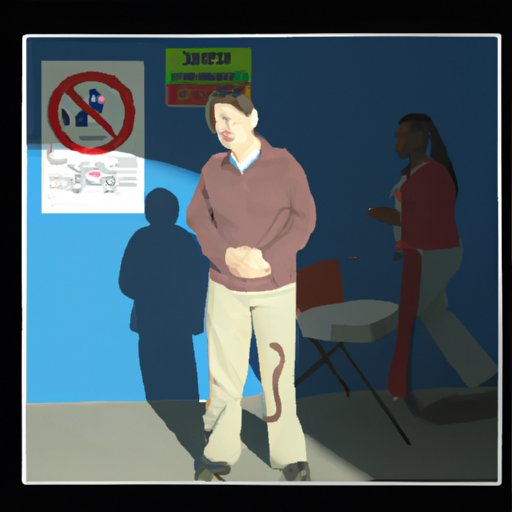
I. Introduction
Tapeworm infection is a common parasitic infection that affects millions of people worldwide. While some people may have no symptoms, a tapeworm infection can cause serious health complications if left untreated. That’s why it’s important to know how to identify and treat the infection before it leads to more serious problems. This article will provide information on the symptoms, diagnosis, and treatment options of tapeworm infections.
II. Symptoms of Tapeworm Infection
The symptoms of tapeworm infection can vary depending on the type of tapeworm and the stage of the infection. Some common symptoms include:
- Abdominal pain
- Diarrhea
- Nausea and vomiting
- Weakness
- Weight loss
- Itching around the anus or genital area
- Passing tapeworm segments in stool
The symptoms may also vary depending on the type of tapeworm. For example, a Taenia saginata infection may cause abdominal pain and nausea, while a Diphyllobothrium latum infection may cause diarrhea and vitamin B12 deficiency.
III. Types of Tapeworms and How They Are Contracted
There are several types of tapeworms that can infect humans, including Taenia saginata, Taenia solium, Diphyllobothrium latum, and Hymenolepis nana.
Tapeworms can be contracted by eating raw or undercooked beef, pork, or fish that contain the tapeworm larvae. People can also contract tapeworms by ingesting tapeworm eggs, which can be present in contaminated food, water, or soil. In some cases, tapeworm infection can be transmitted from person to person through fecal-oral transmission.
IV. Diagnosis of Tapeworm Infections
If you suspect you have a tapeworm infection, it’s important to seek medical attention. A doctor may diagnose a tapeworm infection through a physical examination, stool sample analysis, or imaging tests such as a CT scan or MRI.
Additionally, in some cases, a blood test may be necessary to detect antibodies against specific tapeworms. However, not all tapeworm infections require testing to confirm diagnosis.
V. Common Mistaken Identities
While tapeworm infection symptoms may seem obvious in some cases, other conditions can often be confused with a tapeworm infection. Common misdiagnosed conditions are irritable bowel syndrome, inflammatory bowel disease, or lactose intolerance.
VI. Ways to Avoid Contracting Tapeworms
There are several preventative measures you can take to avoid contracting tapeworms. These include:
- Cooking meat to a safe temperature to kill tapeworm larvae
- Freezing fish for at least 24 hours to kill tapeworm larvae
- Washing hands frequently, particularly after using the bathroom or handling food
- Drinking clean, safe water
- Washing fruits and vegetables before consuming them
- Teaching good personal hygiene to children
Additionally, it’s important to avoid consuming raw or undercooked meat, especially in areas where tapeworm infections are more prevalent.
VII. Possible Complications if Left Untreated
If left untreated, tapeworm infections can lead to serious health complications. For example, a Taenia solium infection can cause cysticercosis, in which the larvae form cysts in the muscles, brain, or eyes. Similarly, a Diphyllobothrium latum infection can lead to vitamin B12 deficiency and anemia if left untreated.
VIII. Treating Tapeworms
When treating a tapeworm infection, the main goal is to kill the tapeworm and prevent further complications. In some cases, home remedies such as eating pumpkin seeds or garlic may be effective against tapeworms. However, these remedies are not scientifically proven to be effective.
In generally, prescription medication is necessary to treat tapeworm infections. Commonly used medications include praziquantel, niclosamide, or albendazole.
IX. Conclusion
Tapeworm infections are a serious condition that can cause serious health complications. It’s important to know how to identify and treat the infection before it leads to more serious problems. If you suspect you have a tapeworm infection, seek medical assistance as soon as possible. Additionally, taking preventative measures such as cooking and handling food safely can help reduce the risk of contracting tapeworms.




